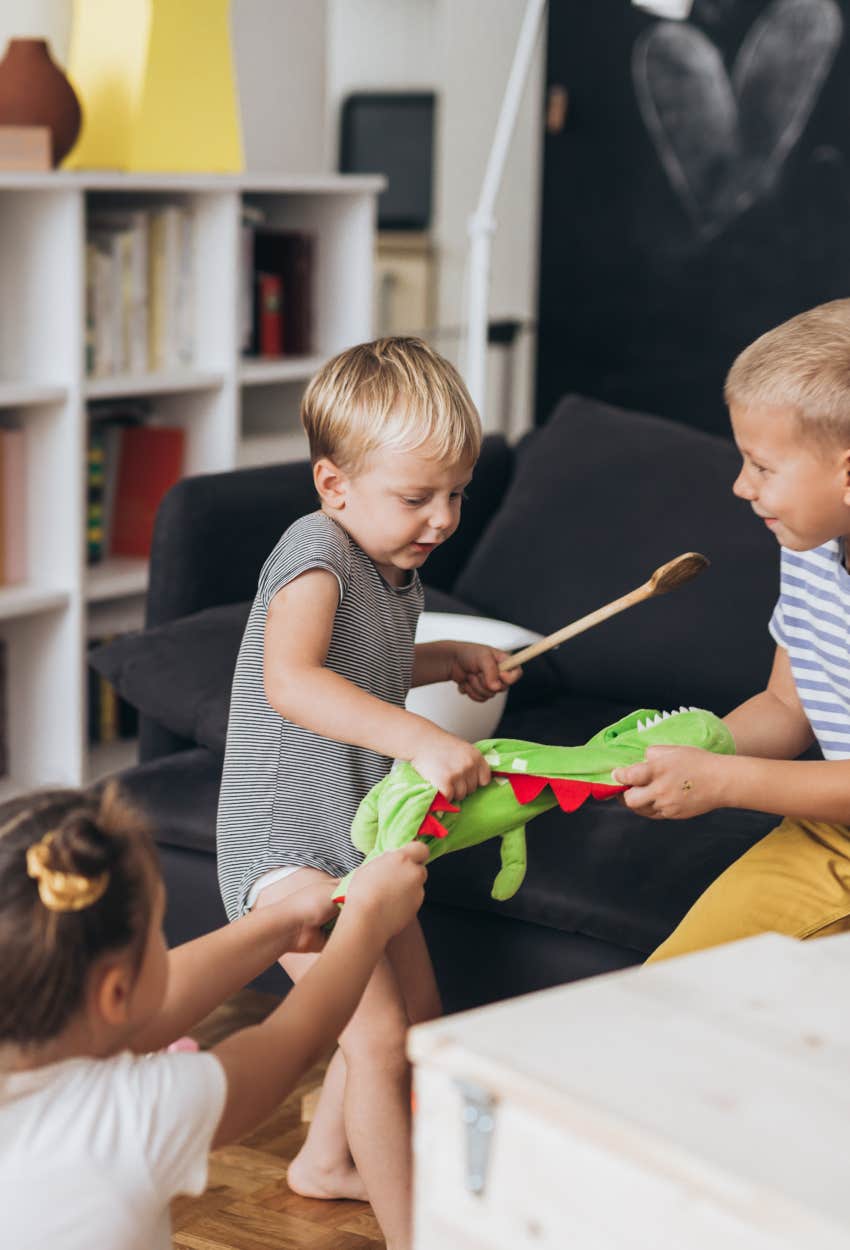You Grew Up In A Happy Home If These 4 Things Sound Familiar, Says A Psychotherapist
Happy doesn't mean harmony all the time.
 PeopleImages.com - Yuri A | Shutterstock
PeopleImages.com - Yuri A | Shutterstock What constitutes a happy home? Is it a family that never fights? One that has nightly family dinners and weekly game nights? Or perhaps one that prioritizes authenticity, allowing children to express themselves however they see fit.
Lara Jalloul is a clinical child psychologist and psychotherapist. On Instagram, Jalloul shared a few patterns that she has noticed in happy homes. The characteristics she highlighted might surprise you.
Here are 4 patterns common in happy households, according to a psychotherapist:
1. They have conflicts.
 Dejan Dundjerski | Shutterstock
Dejan Dundjerski | Shutterstock
When you’re sharing the same space for years on end, you are bound to butt heads. Even in the most functional homes, there will be disagreements, arguing, and probably even some hollering. It’s all a part of being a family!
The key here, Jalloul noted, is knowing "how to resolve things and move forward." Childhood is the ideal time for parents to teach their children how to resolve conflict, and if arguments never happen, they will never have the opportunity.
"Teaching kids practical skills to manage [conflict] in a healthy way will help them navigate everything from small squabbles (“She took my doll!”) to big issues (“I don’t know if I want to be your friend anymore”) both now and as they grow up," The Child Mind Institute explained.
2. They set boundaries with family.
A happy household is maintained by establishing fair and clear boundaries with one another. They tell people how you expect to be treated, allowing everyone to feel understood and respected.
For example, a parent may tell their children that they need time alone in their office when they are working. Siblings may establish rules regarding their personal items, such as clothes, books, or electronics, and agree to ask permission before borrowing them.
3. There is friendship between the parents.
 Branislav Nenin | Shutterstock
Branislav Nenin | Shutterstock
According to Jalloul, the happiest households are those led by parents who are excited to come home to each other each day and consistently demonstrate kindness. A strong friendship between parents sets the tone for a healthy family environment and demonstrates a healthy relationship for their kids.
Ruth Schimel, PhD, told YourTango that parents' relationships have a major impact on children's lives. "Conscious or not, imprints of such early relationships remain and echo in aspects of imagination and expectations, hopes and dreams, issues to avoid, and opportunities to seek in your own life," she explained. "They can permeate and shape your future choices."
Even if they drive you crazy sometimes, you should be friends with your spouse and look forward to seeing them! Your kids will benefit too.
4. They navigate hardships together.
Even happy households experience difficulties — that's part of life. However, it is how families navigate the hardships that matters most.
"During difficult moments, they communicated effectively with each other," Jalloul wrote of happy families. "They do not use strategies such as ignoring, belittling, and they are not passive aggressive."
Instead, they focus on collaborative and productive efforts to find a solution that would benefit everyone in the household. No matter the issue, happy households come together and use their problem-solving skills to get through it as a unit.
Megan Quinn is a staff writer with a bachelor's degree in English and a minor in Creative Writing. She covers news and lifestyle topics that focus on justice in the workplace, personal relationships, parenting debates, and the human experience.

